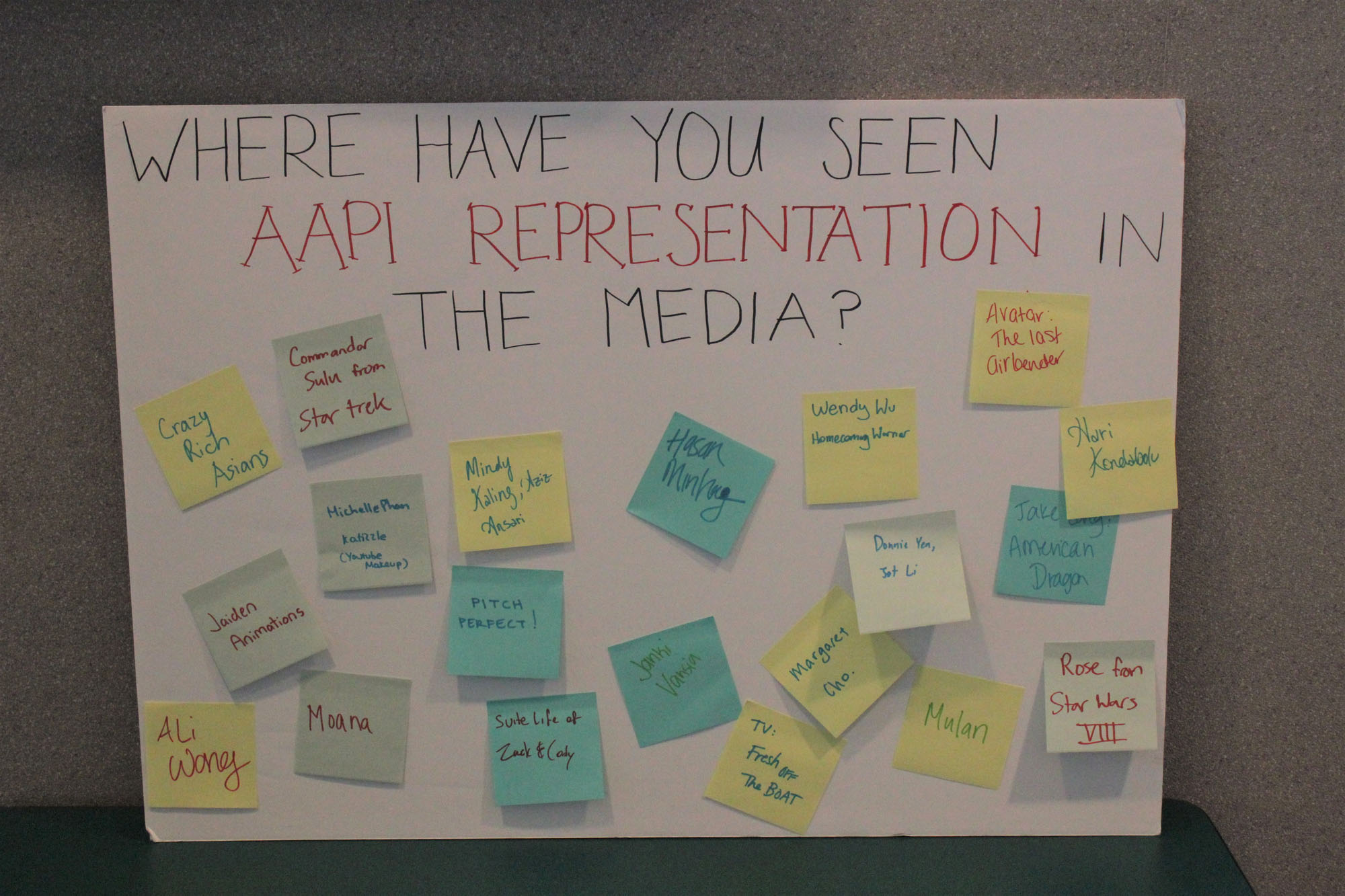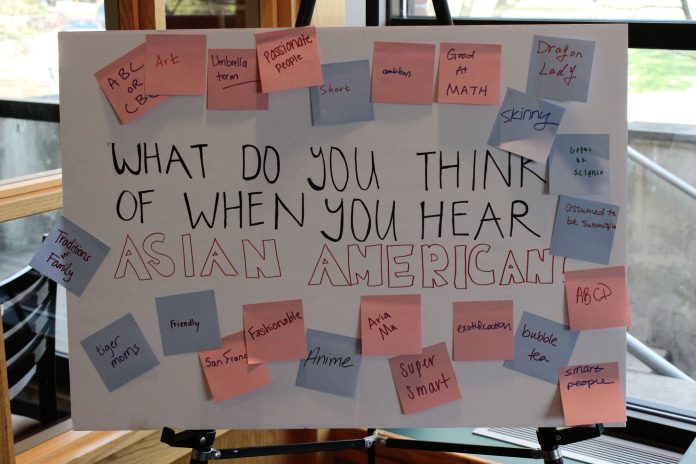The silencing of Asians in America by minimizing their experiences as people of color (POC) is not a new phenomenon. In fact, it stems from the sequence of historical events in the treatment of Asians in America, who would become what is now known as the Asian American community. The Asian race has always been flexible enough to be whitewashed, yet always allowing room to be perpetually grateful, and/or perpetually foreign. Historically, this phenomenon has been constructed not only by dominant sociopolitical influences, but by those in the Asian American Pacific Islander (AAPI) community itself.
Specifically on Muhlenberg’s campus, the lack of diversity strongly creates a space such that the politicized nature of the Asian race is often left unspoken. Asianness is seen as easily commodifiable, most often in the form of food. The word “Asian” is put in front of any food that has ginger, mandarin oranges or wasabi flavoring. The whitewashing is further propagated by many students of the AAPI community who do not engage in any (public) politicized discussion or action around race. In writing this response, I am not trying to call out any specific race, group or institution, but instead shed light on the voices of a portion of Muhlenberg’s AAPI community that desire recognition as POC. Recently, with co-director Christopher Chin ‘19, we directed an event called Asian Pacific American Heritage Month (APAHM) Celebration on Thursday, Apr. 26 in GQ Annex. The purpose was simple: highlight the voices of a range of Muhlenberg students in the AAPI community to engage the campus in intersectional discussions. Our lives are not only made up of discrimination, but also deep pride and joy in each individual’s rich cultural background that we wanted to share with our peers and mentors.
This public display of our multifaceted identities was to add to conversations on campus that those in the AAPI community have racialized bodies, which means they are subjected to different experiences than our white and other POC counterparents. We specifically did not seek out budding social justice advocates but instead sought out your everyday student. A common trend we found among our AAPI peers was that being part of the AAPI community at ‘Berg means living under the concept that Asians are “basically” white. Even though being American citizens, being in the American school system, attending an American private liberal arts college, and so many other factors give us ownership of the American identity, living in an Asian body means we are sometimes treated differently, and that ownership is challenged.

Even though we all identify as AAPI individuals, our backgrounds are as diverse as our personalities; this includes fourth or fifth generation AAPI, children of immigrants (a.k.a. first generation), international students and Asian adoptees. (This is just a brief overview of who contributed to this event.) Yet the fact that we all have been subjected to similar, or in some cases, the exact same discriminatory experiences speaks to the overwhelming dismissive, and sometimes ignorant (if not well meaning), treatment of our racial identities.
The APAHM celebration was successful, I believe, in opening up the minds of our peers and mentors to our lived experiences. The event included personal narratives, presentations of independent research, student designed and run interactive stations and Asian studies faculty perspectives, to name a few. When sentiments like being “basically” white are thrown around (either explicitly or implicitly) and internalized, the diversity of voices and the beauty in that diversity is silenced. Yes, we are your peers, yes, we are your students, yes, we are your student workers and yes, we are your friends. We go through our days as normal as the next person, but we also have extra individual experiences that are influenced by our racialized bodies. These experiences shape each and every one of us differently. As a community we do not all agree on the same issues, but in this case we came together to break the silence not only to show ‘Berg that our voices as POC exist, but that they have so much to offer in the way of expanding conversations and enriching the American experience.























Interesting article. But I personally wanted more details of this unbiased opinion. More examples if you will. Possibly how this may or may not effect an individual’s life, career, economic status, etc. I, as an Asian, appreciate the thought to say the least.